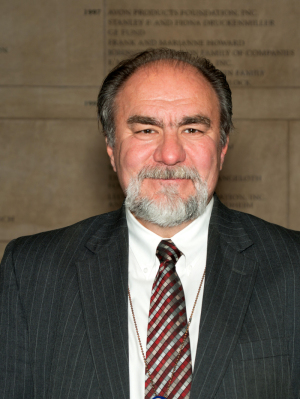by
Gus Iversen, Editor in Chief | August 03, 2018
From the August 2018 issue of HealthCare Business News magazine
As an associate attending in the Department of Medical Physics and chief of Biomedical Engineering at Memorial Sloan Kettering Cancer Center, Paul Frisch is well aware of the challenges being faced today by biomedical engineers.
HealthCare Business News caught up with Frisch to talk about some of the major themes that are dominating the industry and took center stage at this year’s AAMI Meeting.
HCB News: Is your department becoming more integrated with the hospital's IT department? If so, how?



Ad Statistics
Times Displayed: 365002
Times Visited: 6965 Quality remanufactured Certified Centrifuges at Great prices! Fully warranted and backed by a company you can trust! Call or click for a free quote today! www.Centrifugestore.com 800-457-7576
Paul Frisch: Over the last decade the role of Biomedical Engineering has significantly expanded within healthcare institutions. The traditional role of Clinical Engineering that focused on service, preventative maintenance and regulatory compliance has significantly changed. Clinical Engineering no longer works on stand-alone devices. Medical Devices are typically networked, frequently wireless, and integrate to other medical devices, clinical applications and commercial products, such as tablets, cellular phones and scanners. It is becoming increasing important to healthcare institutions to establish working synergies between Biomed, IT and informatics groups with the institution. Clinical Engineering only represents a portion of the overall scope of Biomedical Engineering in today’s hospitals. Depending on the institution Biomedical Engineering can include the investigation of new and evolving technologies, medical device design, device and application integrations, mechanical design, fabrication and 3D printing, managing the electromagnetic environment of the institution and cybersecurity. All of these roles require strong collaboration with IT.
At MSK Biomedical, Engineering and IT have established a strong working synergy. On the service side, service requests go through the center’s IT help desk, where service requests are distributed both to IT and Biomed staff. Biomedical Engineering is a stakeholder and participant in the IT organizational planning, and committee meetings. As an example, an existing Collaboration committee includes Biomedical Engineering, IT and Clinical Staff to jointly review all projects and planned expansions to delegate and ensure resources, funding and the necessary technical skills are available and appropriately assigned.
HCB News: Do you feel like your department is understaffed or feeling a crunch?
PF: MSK, as are most hospitals, is experiencing increasing patient volume and acuity, driving expansion of patient care facilities and new and increasing technologies within the clinical space. Further complicating staffing issues are the new roles being assigned to Biomedical operations. Since many of these new roles require multidisciplinary skill sets beyond those of traditional clinical engineering, it is becoming increasingly difficult to identify the ideal candidates. In most hospitals space is at a premium, where clinical space or patient care space frequently have priority. Therefore, it is necessary to align increased staffing needs to appropriate space.

